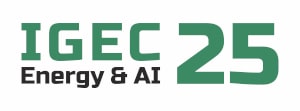Author: Ying Pan (IET at CAS) - Integrating solar energy into the conversion of fossil fuels to liquid fuels fosters a sustainable, low-carbon energy future. Solar-driven chemical looping reforming could stand out as an alternative approach for producing raw materials of methanol synthesis. This strategy utilizes oxygen carriers to divide the reforming reactions into multi-step processes, which helps overcome the limitations of high temperatures and separation demands in catalytic reforming. In this study, scalable high-performance oxygen carriers are utilized for chemical looping steam methane reforming process, where syngas with flexible stoichiometric ratio and high-purity hydrogen are respectively produced below 600 °C. Building upon this process, an integrated solar-based hybrid system is proposed for methanol and hydrogen co-production. With reduced reforming temperatures, the hybrid system upgrades the quality of solar energy with 37.5% input saved, an increase of 1.6~8.0% in energy efficiency and 22.8% in methane-to-fuel efficiency are also achieved compared to steam methane reforming-based methanol production systems. The effects of energy supply modes, H2 recovery from vent gas and reduction temperature are analyzed to elucidate the regularity under off-design conditions. This research aspires to provide an efficient and eco-friendly pathway for solar methanol production.
